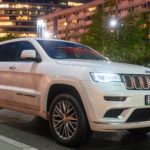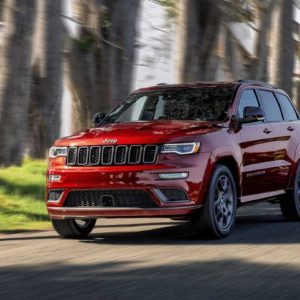Earlier this year, the Cherokee Nation in the United States criticized Jeep for continuing to use the “Cherokee” and “Grand Cherokee” names on a number of its models. The principal chief of the Native American tribe said it’s about time the automaker dropped the name from its portfolio.
Shortly after, Carlo Tavares, CEO of Jeep’s parent company Stellantis, told the Wall Street Journal in an interview that the company is currently in discussion with the tribe and that the company is “ready to go to any point” as the talks move forward.
Tavares also expressed he’s not sure “if there is a real problem,” before saying: “If there is one, well, of course, we will solve it.”
Chuck Hoskin Jr., principal chief of the Cherokee Nation, told online publication Car and Driver in February that Jeep had failed to enter into what the tribe deems as “meaningful dialogue… on cultural appropriateness.”

He said: “I’m sure this comes from a palace that is well-intended, but it does not honor us by having our name plastered on the side of a car.”
A spokesperson for Stellantis, meanwhile, countered: “Our vehicle names have been carefully chosen and nurtured over the years to honor and celebrate Native American people for their nobility, prowess, and pride. We are, more than ever, committed to a respectful and open dialogue with Cherokee Nation Principal Chief Chuck Hoskin, Jr.”
While it seems unlikely for the automaker to completely abandon two of its long-running names, it could be seen as a welcome development that both parties are open for conversations on the issue.
Jeep has been using the “Cherokee” name since 1974, while the more popular “Grand Cherokee” model was introduced in 1993.
Any information provided on this Website is for informational purposes only and is not intended to replace consultation with a professional mechanic. The accuracy and timeliness of the information may change from the time of publication.



















